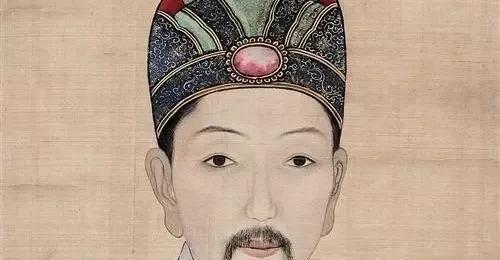【Qing History Series-14】
After Emperor Taiji succeeded to the throne, he looked at the wolf-like flag master brothers around him, one by one, with heavy troops and strong strength, he could not help but have some lack of confidence and was eager to establish his own prestige. If you want to establish your prestige and make others obey you, the easiest and most effective way is to fight. Since the beginning of the war with the Ming Dynasty, Jin has gained a lot of territory and wealth through the war after all these years, so the whole country is active in fighting wars.
If you want to fight, the opponent is also ready-made, and Yuan Chonghuan is staying in Ningyuan. Yuan Chonghuan became famous in the Ningyuan Victory and was promoted to the post of Inspector of Liaodong. He continued to adhere to the concept of "guarding the inside of the pass and guarding the outside of the pass", and put forward the tactical principle of "avoiding the enemy's strengths, attacking the enemy's shortcomings, relying on the city to hold firm, and gradually advancing forward". Yuan Chonghuan strengthened and expanded the castles of Jinzhou, Dalinghe, and Xiaolinghe, and implemented military tuns in the local area, using the Liao people to defend the Liao territory and rebuild the Ningjin defense line.

Yuan Chonghuan
For Huang Taiji, if he could defeat Yuan Chonghuan and defeat Ning Yuan, it was undoubtedly the best way to prove his ability and establish his prestige. On the sixth day of The first month of May in the first year of the Later Jin Dynasty (1627), Emperor Taiji led tens of thousands of troops from Shenyang to attack Jinzhou.
On May 11, the Houjin army swept away the strongholds on the outskirts of Jinzhou and surrounded jinzhou city. Responsible for guarding Jinzhou was Yuan Chonghuan's right-hand man, Zhao Lijiao, the commander-in-chief of Pingliao. There was another eunuch in charge of supervising the army, named Ji Yong.
After Jinzhou was besieged, Zhao Lijiao and Ji Yong actively prepared for battle, commanded soldiers to defend the city, and at the same time sent people to Ningyuan for help. On May 12, Emperor Taiji ordered a siege of the city, and the Battle of Jinzhou broke out. The Ming army had long been prepared for the Houjin invasion, the Jinzhou city soldiers were well fed, the morale of the defenders was strong, and they repelled many enemy attacks in a row, and the siege soldiers of Houjin suffered heavy casualties.
Jinzhou Ancient City
On May 13, the Later Jin army attacked the city again, and the Jinzhou defenders returned fire with firearms and artillery, but the Later Jin army suffered heavy losses and still made no progress. Emperor Taiji was so anxious that while he was mobilizing reinforcements from Shenyang, he wrote a letter of persuasion to surrender the bow and arrow into the city, trying to persuade Zhao Lijiao and others to surrender, but the other side did not respond. The two sides confronted each other until the twenty-fifth day, and the Jin generals Borjin, Turge and others led the reinforcements from Shenyang to Jinzhou, and the siege force was greatly strengthened.
Jinzhou could not be attacked for a long time, and Emperor Taiji decided to bypass Jinzhou and directly attack Ningyuan. On May 27, Emperor Taiji left part of his forces to continue besieging Jinzhou, and he personally led a large army to continue south and attack Ningyuan. On the 28th, the main force of the Houjin army reached Ningyuan and began to attack the city. Ning yuan's garrison was stronger than that of Jinzhou, and Yuan Chonghuan also changed the tactics of the past behind closed doors, sending generals such as Man Gui and You Shiwei to lead the army out of the city and engage the Eight Banners under the city and fight fiercely.
Schematic diagram of the Ningjin Defense Line
The Ming army cooperated with each other in the upper and lower parts of the city, artillery fire and arrows were fired in unison, the red-clad cannons shook the mountains, and the Eight Banner soldiers who fought were killed and wounded, and the army collapsed. During the fierce battle, the Emperor's Great Tent was destroyed, and Heshuo Bellezil Harang and others were also seriously injured.
On May 29, Emperor Taiji led his army to retreat from Ningyuan, and when passing through Jinzhou, he felt unwilling, so he tried to attack Jinzhou again. However, at this time, the Houjin army had been fighting for many days continuously, the people were sleepy and lacking, the morale was low, and the attack on Jin was once again unsuccessful.
In the early morning of the fifth day of the first month of June, Huang Taiji led his army to withdraw from the outskirts of Jinzhou and returned to the Shenyang base camp on the twelfth. The Battle of Ningjin lasted more than a month and ended with the victory of the Ming army. Huang Taiji was originally full of ambition and wanted to rely on a big victory to establish his power, but the result was that the damaged soldiers were reduced to nothing, and he returned with a gray face, so he was not depressed.
Emperor Tai Chi
The main reason for Huang Taiji's defeat in the Battle of Ningjin was that he underestimated the difficulty of the siege, and rushed to attack Ningyuan before Jinzhou had been breached, resulting in the dispersion of troops, the enemy on both sides, and the soldiers were exhausted.
In addition, the time point he chose to attack Ningjin this time was not very good, the fifth and sixth months of the lunar calendar were in the summer, the weather was hot, and the officers and men of Houjin were exposed to the wild for a long time, and many people suffered from heat stroke, which affected the combat effectiveness, which was also an important reason for the failure.